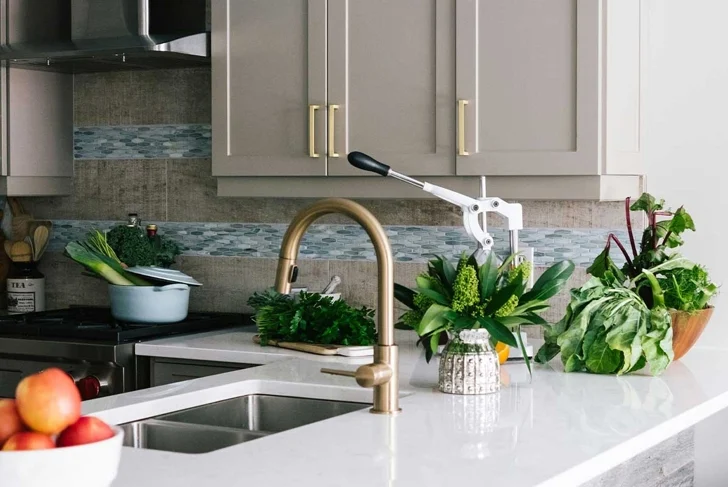11 Natural Ways to Beat Bloating (Without Reaching for Medication)
Bloating isn’t just a nuisance—it’s a real discomfort that can leave you feeling sluggish, swollen, and out of sync with your body. If you’ve ever found yourself loosening your waistband after a meal or avoiding your favorite jeans because of that uncomfortable puffiness, you’re not alone. Bloating affects nearly one in seven people weekly, and for many, it’s more than just an occasional annoyance.
The good news? There are natural, accessible remedies that can help you find relief—and even prevent bloating before it begins. From mindful eating to herbal helpers, here are 11 effective strategies to beat the bloat naturally.
1. Pinpoint and Limit Your Trigger Foods
Bloating is often your body’s reaction to something it doesn’t digest well. While everyone’s digestive system is different, some foods are common culprits. These include:
- Beans and lentils
- Dairy (especially for those with lactose intolerance)
- Cruciferous vegetables like broccoli and cauliflower
- Artificial sweeteners (often found in sugar-free gum and candy)
- Carbonated beverages
- High-fructose fruits (think apples, bananas, and dried fruit)
- Wheat products (especially if you have gluten sensitivity)
Identifying and limiting these foods can go a long way toward reducing bloating episodes.

2. Keep a Food Diary
Not sure what’s causing your bloating? Start tracking your meals and symptoms in a food diary. You might discover that certain meals consistently leave you feeling uncomfortable. Whether it’s pasta night or your daily protein shake, logging your intake helps connect the dots between what you eat and how you feel.
3. Consider a Low-FODMAP Diet
If your bloating is chronic or tied to digestive disorders like IBS (Irritable Bowel Syndrome), a low-FODMAP diet may offer relief. FODMAPs are fermentable carbs that are poorly absorbed in the gut, often causing gas and bloating. Cutting back on high-FODMAP foods under the guidance of a healthcare provider can significantly ease symptoms for many people.
4. Eat Slowly and Mindfully
Rushed meals can lead to swallowing excess air—one of the fastest routes to feeling bloated. Eating too quickly can also lead to overeating before your body has time to signal that it’s full.
To avoid this, try these simple changes:
- Sit down while eating (and actually focus on your food)
- Chew thoroughly
- Put away your phone or laptop during meals
- Take breaks between bites
Slowing down your eating can help digestion and reduce bloating.

5. Move Your Body
Physical activity supports digestion and can help gas move through your digestive system more efficiently. Something as simple as a 10-minute walk after meals can make a difference. Aim for at least 150 minutes of moderate exercise per week—not just for bloating relief, but for your overall health.
6. Stay Hydrated
It may seem counterintuitive, but drinking more water can actually help reduce water retention and bloating. Dehydration slows down digestion and can contribute to constipation, a major bloating trigger. As a general rule, men should aim for about 13 cups and women around 9 cups of water per day—more if you’re active or in hot weather.
7. Harness the Power of Peppermint
Peppermint has a well-earned reputation for soothing digestive discomfort. Peppermint oil capsules, in particular, can relax the intestinal muscles and ease bloating—especially in people with IBS. If capsules aren’t your thing, a warm cup of peppermint tea may offer gentle relief as well.
8. Add Ginger to Your Diet
Ginger isn’t just for colds or nausea—it’s also a digestive aid. It can help your stomach empty faster, which reduces the chances of food lingering and causing bloat. Ginger tea, smoothies, stir-fries, or even baked goods are great ways to add this spicy root to your routine.
9. Sprinkle in Some Fennel Seeds
Used for centuries across many cultures, fennel seeds are a natural remedy for digestive woes. They help relax the GI tract and reduce gas buildup. Try chewing on a few seeds after a meal, sipping fennel tea, or adding them to dishes for a warm, licorice-like flavor.
10. Give Yourself a Belly Massage
Gentle abdominal massage can stimulate digestion and help move trapped gas. Using circular motions around your stomach area can ease bloating and promote comfort. Michigan Medicine, for instance, outlines a simple three-step abdominal massage you can do at home.
11. Support Your Gut with Probiotics
A healthy gut microbiome plays a huge role in reducing bloating. Probiotics—beneficial bacteria that support digestion—can help restore balance. You can get them from:
- Yogurt and kefir
- Fermented foods like kimchi, sauerkraut, and miso
- High-quality probiotic supplements
If your bloating is persistent or severe, it’s a good idea to consult with a healthcare professional. Sometimes underlying conditions like IBS, food intolerances, or even hormonal fluctuations can be at play.

